WELLBEING
Photo: IDAHOBIT Day 2023

WELLBEING
Photo: IDAHOBIT Day 2023
Students can access wellbeing via an online booking form for Wellbeing and health related matters.
Student Wellbeing Check In Request Form
Parents/ Carers can access supports from Wellbeing for their young person via the Administration Office.


Welcome to the middle of Term 2 and the start of the weather being either sunny and mild or very frosty and cold. Wellbeing has been a cosy space for those needing support – remember to speak with your mentor teachers if you would like to come and talk to one of us.
This past week we were excited to celebrate IDAHOBIT day on Tuesday 16th May. This day was a day to come together as a school community and show our support for each other, celebrating the school’s diversity and to highlight what an inclusive and welcoming school Surfcoast Secondary College is. The day was a real success, and we are grateful to the many staff and students who worked tirelessly on the day. The money raised from the casual clothes day will be donated locally to Drummond Street Family and Youth Services.
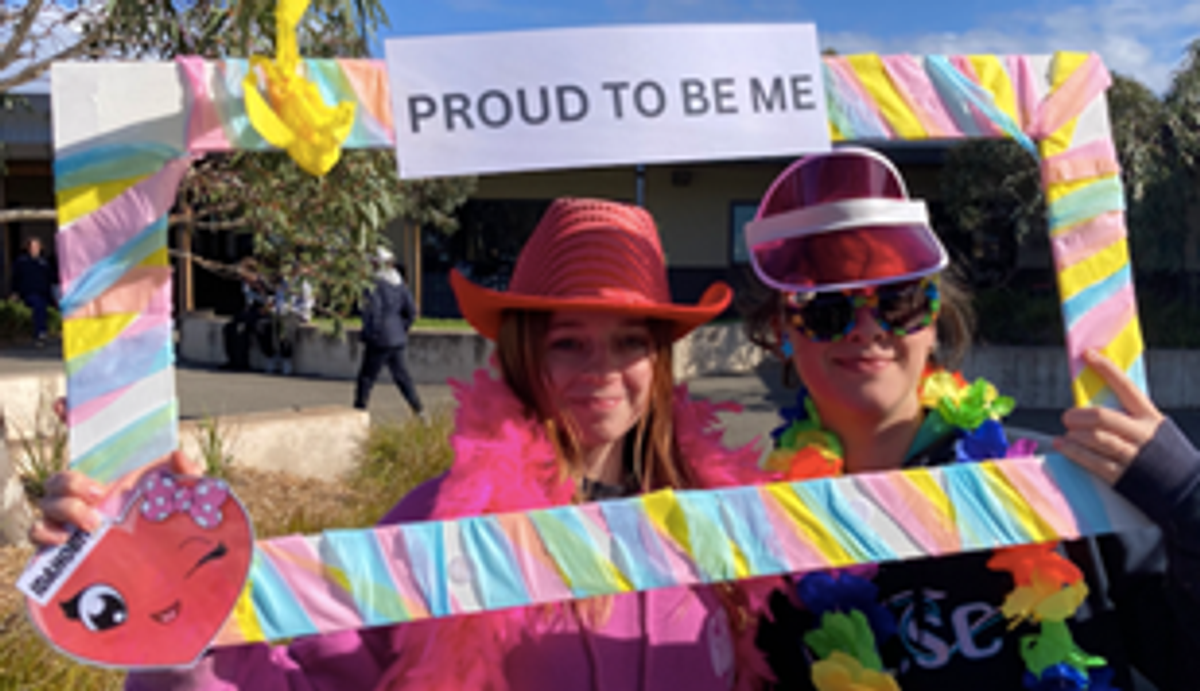
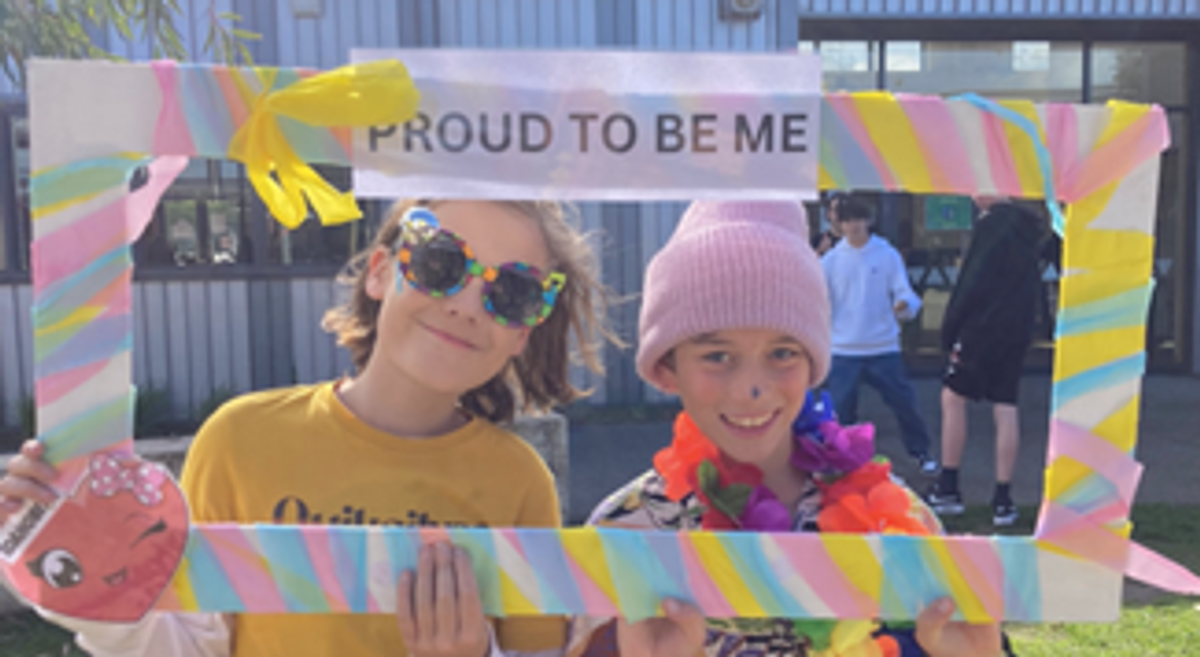



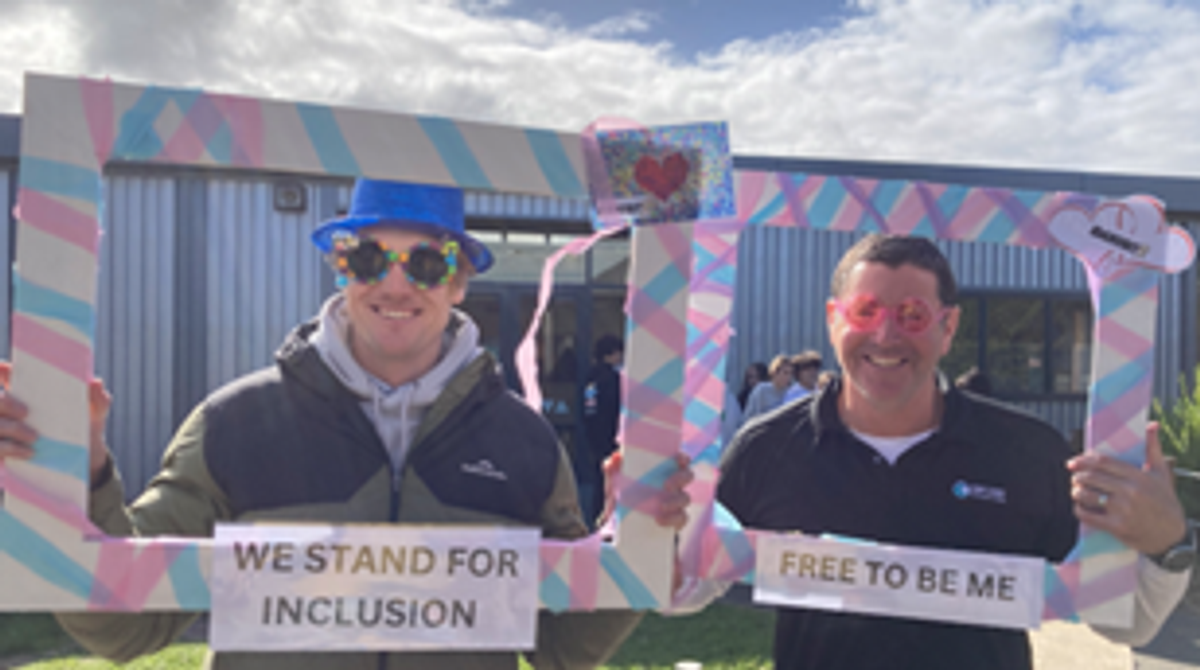








We are excited to announce that Surf Coast Secondary College has successfully obtained a grant from the Surf Coast Shire to work with community artist Adie McDermitt on an IDAHOBIT Inclusion Art Piece. The project will be supported by our wonderful art teachers and the schools inclusion group ‘Prism’ as well as other interested students. The work will commence this week – it will represent a school of fish swimming together as one. The final piece will be exciting to see- with our school values of Strive, Unite, Respect and Flourish represented so well in each student’s art piece. More pictures to come…
This newsletter, we would like to talk about friendships and navigating them in a healthy and respectful way. This feels fitting to explore after celebrating our Inclusion Day as good mates are there for you in good and bad times. It is good to remember that not every friend is the right friend for you, good friendships and working through the bad friendships can be tough to navigate so drawing on some basic skills can be helpful for you.
Having good friends who love and support you for who you are is really important for your happiness. Figure out what makes a good friend and learn how you can be there for your friends when they need you most.
This can help if:
Why good friends are so important
Research has shown that the better the quality of your relationships, the more likely you are to be happy. So, being a great friend to someone and having friends support your back is good for your wellbeing. But what, exactly, makes a good friend?
Signs of a good friend
Friends will come and go in your life. No matter how long your friendships last, the most important thing is your friends’ acceptance of you for who you are. A good friend walks the talk and shows that they care by their actions – big and small.
A good friend:
How to be a good friend
If you treat the people around you in the ways described above, then you’re already a good friend to them. But it’s not always easy to know how to be there for your friends.
Listen to them
Try to understand a situation from your friend’s point of view. Ask questions to get a sense of the problem or issue, but the main thing is to listen to them. You don’t have to have all the answers, and don’t assume that your friend wants advice – they might just want to talk so that they can work it out for themselves.
Get the facts
If your friend has a medical or mental health issue, a good way to offer support is to learn about what they’ve been diagnosed with. Being interested in what they’re going through shows you care, and that you plan to stick around no matter what’s going on.
Ask them what they need
If you’re worried about someone and you want to be there for them, ask them what they need. You’ll then know what they find helpful during tough times, and you can offer them support in a way that’s genuinely helpful.
Get physical
If you’re a hugger, ask your friend whether it’d be okay to hug them. Once you get the thumbs up, hug away! Hugging your friends can be a great way to show you care for them. Physical contact can be comforting, especially when someone feels alone.
Keep in touch
Even if you don’t live nearby, show your friends you’re there for them by making an effort to keep in regular touch through social media, texts or calls.
Tell them how you feel
You don’t have to make a big deal about it all the time, but you can make a real difference to how someone is feeling just by letting them know how important they are to you. So, go for it!
Be willing to make a tough call
If you think your friend’s safety is at risk, you might need to act without their consent and get help. It can be a tough call, particularly when you’re worried about how they’ll react, but remember that good friends care enough to step up, and that you’re doing it to protect them from harm.
You can sometimes realise that there are some parts of a particular friendship that are toxic and make you feel not so great. None of us like the idea of losing a friend, and some people deserve a second chance, so it’s worth trying to talk it out with them.
Remember that you don’t deserve to be treated badly, especially by a friend, and that it’s not okay for them to act like this. If you’re unsure whether your friendship is toxic, check out this quiz to help you figure it out.
This can help if:
Get your head around the situation
How do you feel and what do you want?
Getting your head around what’s going on will help you to identify what you want and decide what to do next. Try writing your thoughts down to help make things clearer.
Do you think your friend will change if you tell them how you’re feeling?
It’s possible that your friend actually doesn’t know that the way they’re treating you is hurtful. For example, if they’re not replying to your messages and it seems like they’re ignoring you, they could just be busy or may have just forgotten to reply.
Do you think your friend is intentionally trying to hurt you or put you down? Do you think they would stop or change what they’re doing if you let them know that it’s hurting you?
You could try talking to a family member or trusted adult to get another perspective.
Think about your own behaviour
Figure out what you can and can’t control
When it feels like someone is intentionally being hurtful, it’s easy to get caught up in focusing on them. You might spend a lot of time flipping through your memories of them, scrolling through their social media, or asking other friends and family about them.
It takes a lot of energy to think so much about someone whose actions you can’t change. Read more about learning to accept things that are out of your control.
Instead of honing in on your friend’s actions (focusing on the other person), you could think about how you want to respond to specific behaviours (focusing on yourself). It might look like this:
Having these principles and boundaries for yourself about how you act in your relationships is a helpful way to shift your focus back to what you can do, rather than what you can’t.
Are you being respectful?
Something to be mindful of is that when standing up to your friend about their behaviour, it’s possible that you could be showing some toxic behaviours yourself. Watching out for this can help you to avoid it. For example:
Handle things when they happen
It can feel pretty hard to call someone out for their behaviour. However, if you do it politely and respectfully, this can be a super-effective way to establish boundaries and maybe even improve your friendship. For example, if they:
If you’re nervous about saying something right away, you could send them a text later.
Have a conversation
If speaking up when specific things happen doesn’t work, or you think that there’s a bigger issue, try having a conversation with your friend. While it can be scary, having a direct and open discussion can let you air things out with your friend and express your thoughts. Being open and honest will also help to avoid involving other people and escalating things.
Learn how to talk to your friend about friendship issues here.
Set new boundaries
After talking to your friend, you might consider setting some boundaries. They could be specific ones or left vague, depending on what you need.
Reduce contact
If some of the negative behaviour is happening over text, an easy boundary to set is to let your friend know that you can’t text them as much as you used to because it’s affecting your performance at school, uni or work.
If you just want to take a step back in general, then you might not have a specific boundary in mind, and that’s okay. You could let your friend know that while you still want to hang out, you can’t do it as much as you used to because other stuff in your life is taking up more of your time.
Take a break
You might also ask to have a break from the friendship. Try saying, ‘I’ve got a lot going on at the moment and won’t be able to stay in touch for a few weeks.’ This will give you time to figure things out.
If you go to the same school, don’t feel pressured to stop and chat to them when you see them. You don’t have to be hostile or create drama, but you don’t have to buddy up either – a smile-and-nod approach might work. It’s bound to be awkward at first – let yourself feel those feelings. Try to make peace with the situation and know that it will be okay soon.
What next?
It takes a lot of strength to stand up for yourself and approach your mate to talk about how their behaviour makes you feel. If these strategies don’t work, don’t think you have failed. Check back in with the person if they don’t stop. If they still aren’t respecting what you’ve told them, or they refuse to have a direct conversation, then it could be time to think about ending this toxic friendship.
While this is all happening, remember that you don’t deserve any of it. 5 ways to look after yourself by spending time with trusted friends and family members, and put some time aside to do things you love.
What can I do now?


Key vaping facts
The laws around selling vapes


It is illegal to sell vapes to anyone under the age of 18 years. Young people often purchase vapes online, from retail stores, or from friends and contacts on social media. You can report suspected illegal sales of vapes to by calling the Tobacco Information Line on 1800 357 412.
Talk to your child about vaping
It’s important to take the time to talk to your child about the risks of vaping. Try to start the conversation in a relaxed easy-going way, and remember your goal is to have a conversation, not deliver a lecture.
Students from Year 9 have been enjoying working along community women at the women’s shed making T-Shirt bags. Learning outcomes are so rich when we combine intergenerational opportunities for both students and the women living in our community. As you can see the students are learning skills like following patterns and sewing, and I am sure they are teaching the Women’s shed about how school is in 2023.
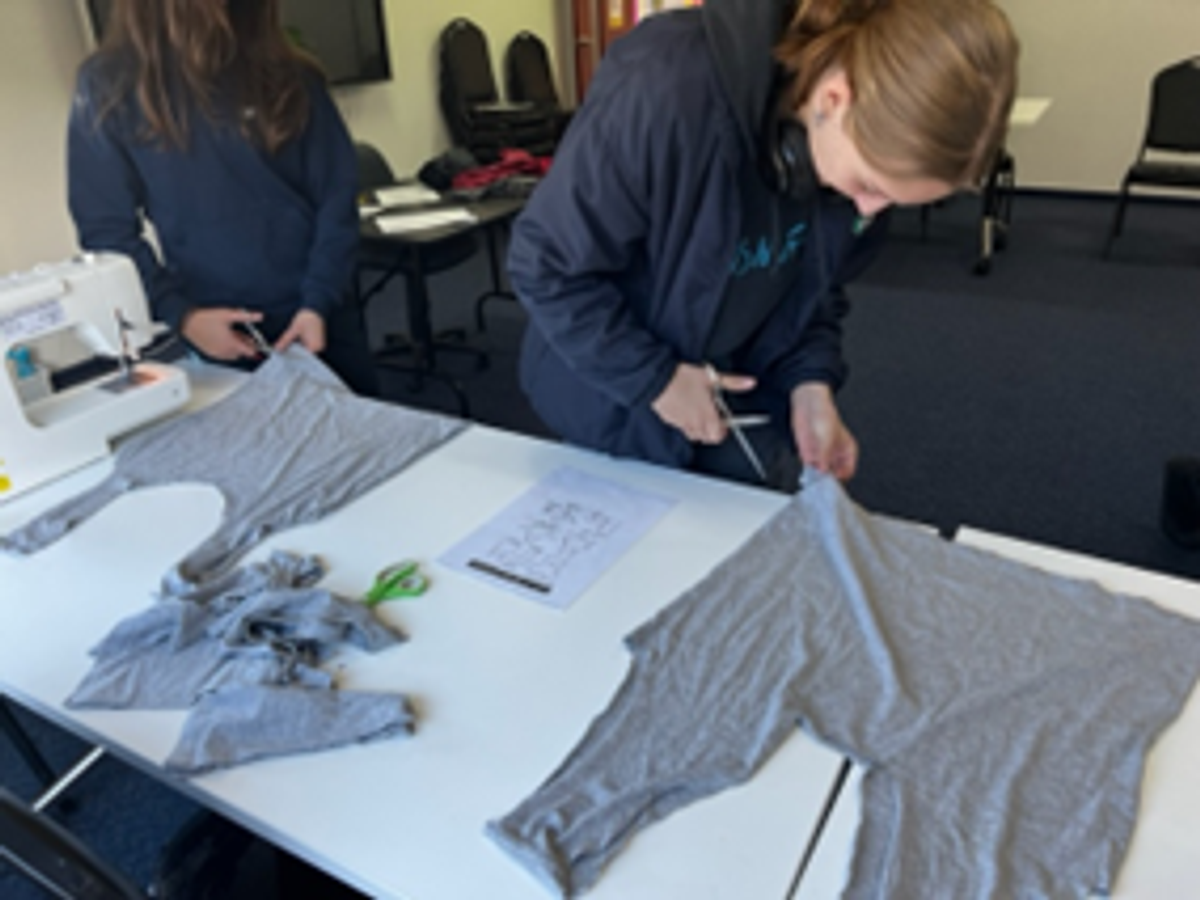
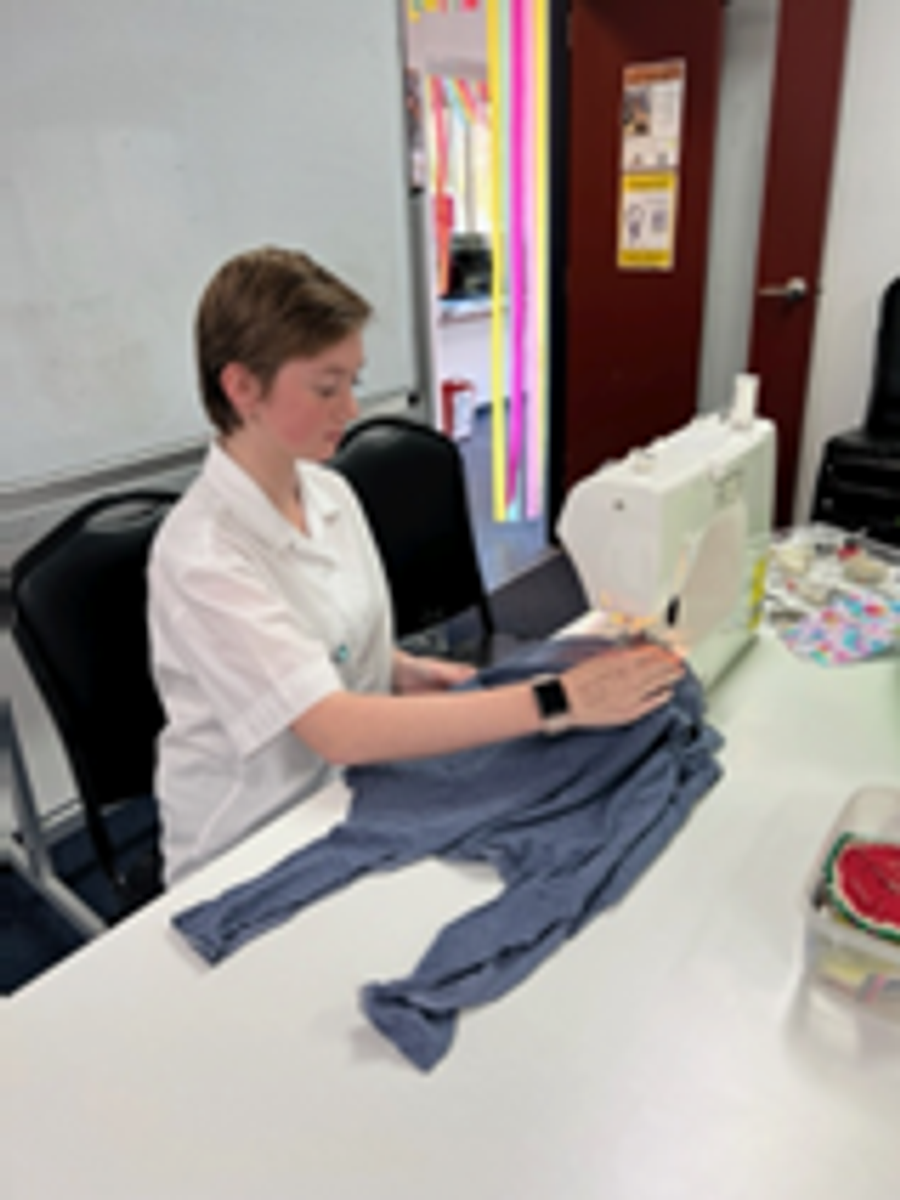
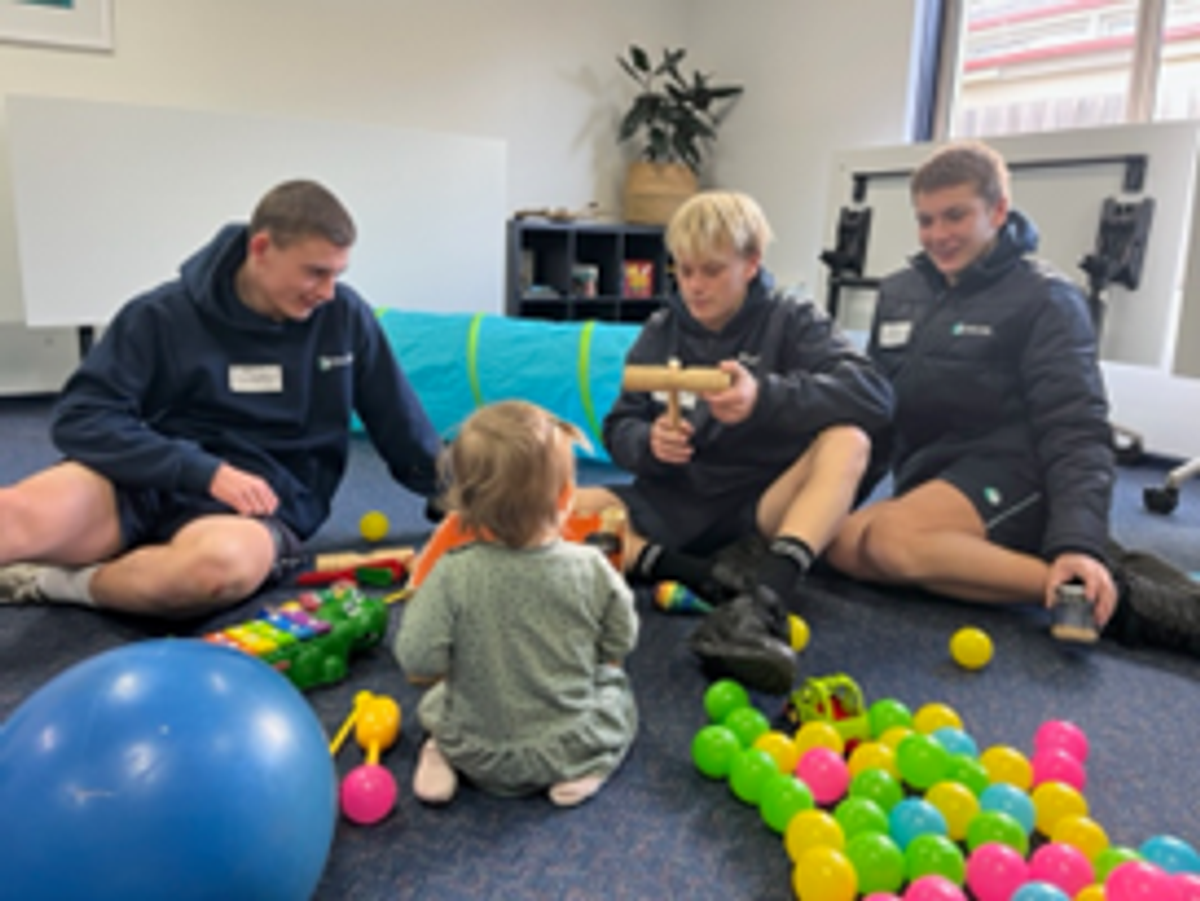



Every Wednesday students from Year 11 HHD class have an opportunity to rotate through in groups with the active play group session in the local community. This picture tells it all- with students learning through interaction and observation about the healthy physical, social and emotional development in early childhood. Watching interactions between parent/careers and their child also develops a richer understanding for our students on the impact that connection has on us as people.
As Always stay kind and reach out if you need too.
Michelle, Mel, Jas, Shelley, and Rachel
Headspace Geelong has been hosting Mate Space sessions in Torquay.
These male only sessions are held inside the Youth Centre at KMCC and runs from 4pm-6pm.

